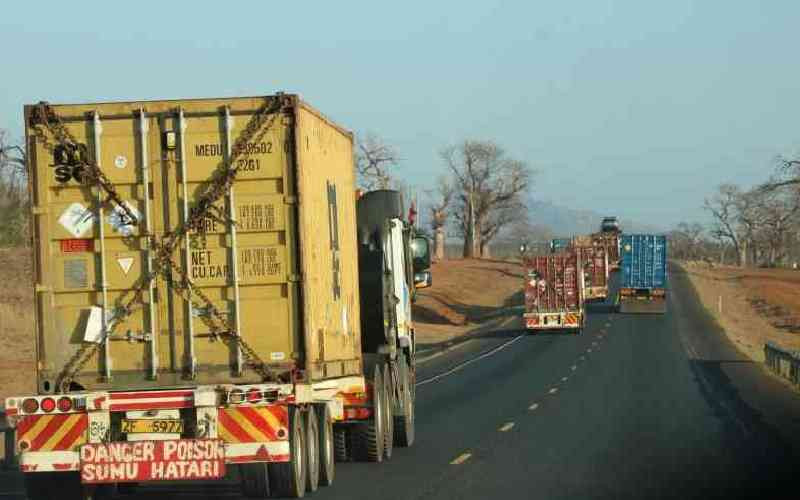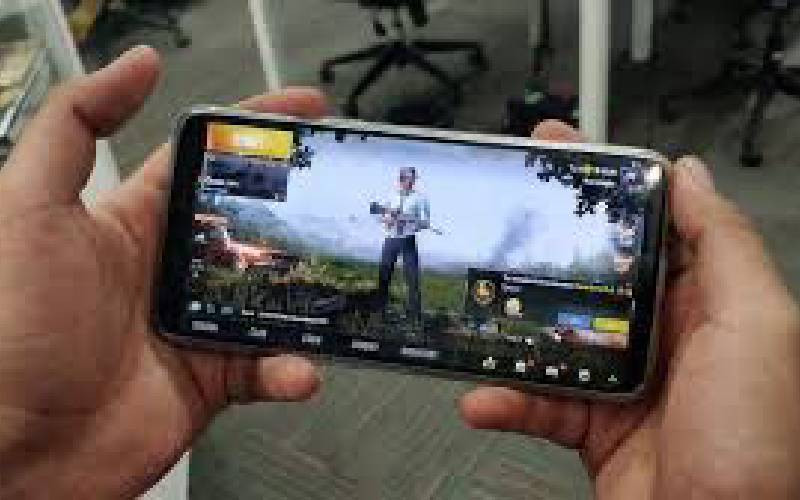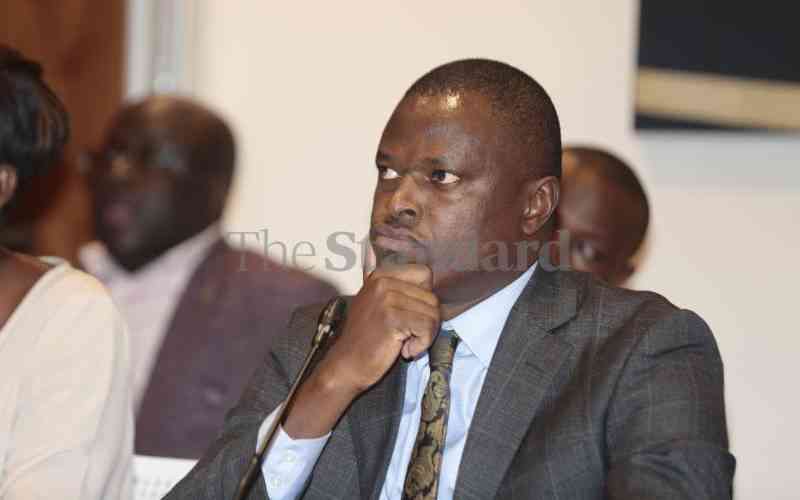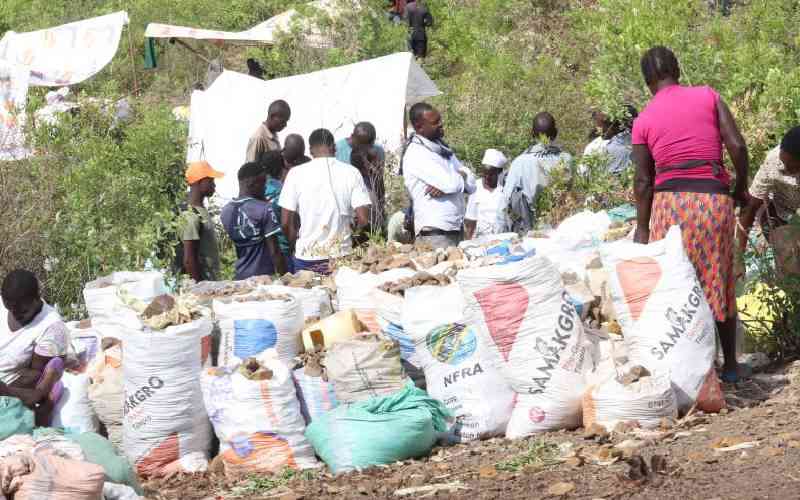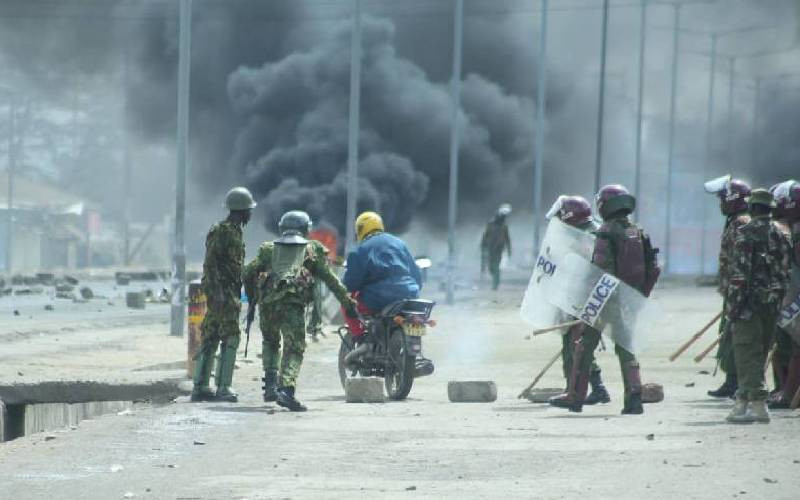
In a modest, weathered stone house tucked along the narrow, dusty paths of Nyeri’s Grogon estate, grief clung to the air like smoke.
It is the home of Harrison Wachira — one of the scores of Kenyans allegedly killed by those sworn to protect them: the police.
His eldest sister, Aisha Wangui, sat hunched in a plastic chair, clutching a framed photograph of her brother.
Around her, women wept. Chairs scraped against the cement floor, and handkerchiefs dabbed at tear-streaked faces twisted in anguish. “He was like my lastborn,” Aisha sobbed.“I raised him when we had no one left. He had just started standing on his own,” she added.
Wachira, a 37-year-old father to an eight-year-old girl, was the youngest of his siblings — all orphaned early in life. Their mother died in 1995, and their father followed in 2015.
“After our mother passed away, I took full responsibility for the family,” Aisha said softly. “Life was incredibly difficult, but I kept going because my siblings — especially Wachira — depended on me. I worked hard to pay for his motorcycle technician training because I saw his potential.”
Wachira later moved to Ndaragwa, where he began farming and eventually opened a small shop to support himself.
But his journey towards independence had begun even earlier. After completing primary school, he went to live with his aunt, Jane Wanjiru, in Nyeri. Wanjiru raised him like her own son, helping him find his footing. Eventually, he returned to Ndaragwa.
He later relocated to Juja, where he worked as a mechanic. According to his family, on July 7 during the Saba Saba protests — he was shot dead by police officers while closing his workshop.
No dignity
“When I saw that video online, I prayed for that poor boy. Little did I know I was praying for our own. Our son. We will miss him dearly,” Wanjiru recalled, her voice breaking.
A disturbing video of the incident circulated online, showing the harrowing moment Wachira’s lifeless body was dragged by two police officers towards Juja Police Station.
Wachira’s family insists he was unarmed, not part of any protest, and was simply packing up his tools for the day when violence erupted nearby..
Suddenly, a Subaru with no number plates pulled up, and officers opened fire indiscriminately.
Stay informed. Subscribe to our newsletter
Gunshots rang out. Wachira was struck and collapsed, bleeding by the roadside. Good Samaritans who tried to rush him to a nearby ambulance — only 100 metres away — were driven back by tear gas.
“They wouldn’t let anyone come close,” his aunt said. “He was left bleeding like an animal on the road. There was help nearby, but they let him die. Then two officers came, grabbed his body and dragged him like he was nothing. His head was hitting the tarmac.”
The next morning, she tried to call Wachira. He didn’t answer. She then phoned his sister, Aisha, who told her she had just spoken with Wachira’s fiancée — the woman he lived with in Juja.
The fiancée had told Aisha that Wachira went missing the previous evening, and she had just discovered his body that morning, soaked in blood, at the mortuary.
The family is united in their demand for justice.
“These are our children. We parents have sacrificed so much to raise them — paid school fees from nursery to university — and then they are killed by the same government that promised them jobs?” Wanjiru says
Nancy Muringi, Wachira’s cousin echoed her sentiments: “We want justice. And not just words. We want those officers held accountable. If we stay silent, they’ll do it again. They’ll kill someone else’s son and drag him just like they did Wachira.”



